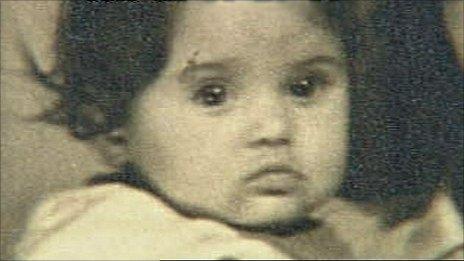Holocaust survivor tells of birth in concentration camp
- Published
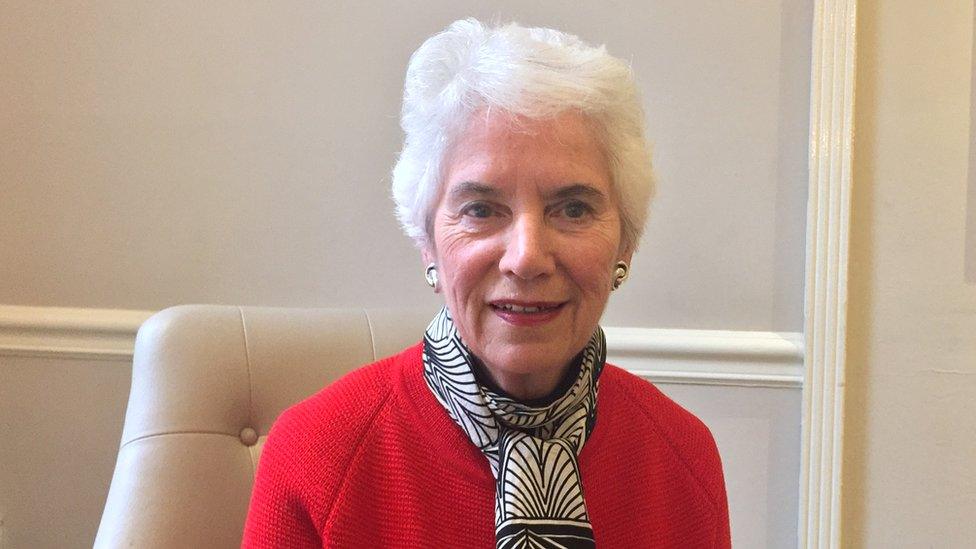
A holocaust survivor has told Welsh pupils about being born in a concentration camp.
Pupils from south Wales were at a speech by Eva Clarke, 71, in Cardiff on Sunday ahead of a visit to Auschwitz-Birkenau in Poland on Wednesday.
It was organised by the Holocaust Educational Trust (HET). Mrs Clarke came to live in Cardiff with her mother and step-father in 1948.
"I think education is the most vital tool we have," she said.
About 150 16 to 18 year olds from Cardiff, Newport, Swansea, Vale of Glamorgan, Pembrokeshire, Rhondda Cynon Taff and Neath Port Talbot listened to Mrs Clarke's talk.
Her mother, Anka Bergman, was from Czechoslovakia and met her husband, Bernd Nathan, a German-Jewish architect who had fled Germany in 1933, in Prague.
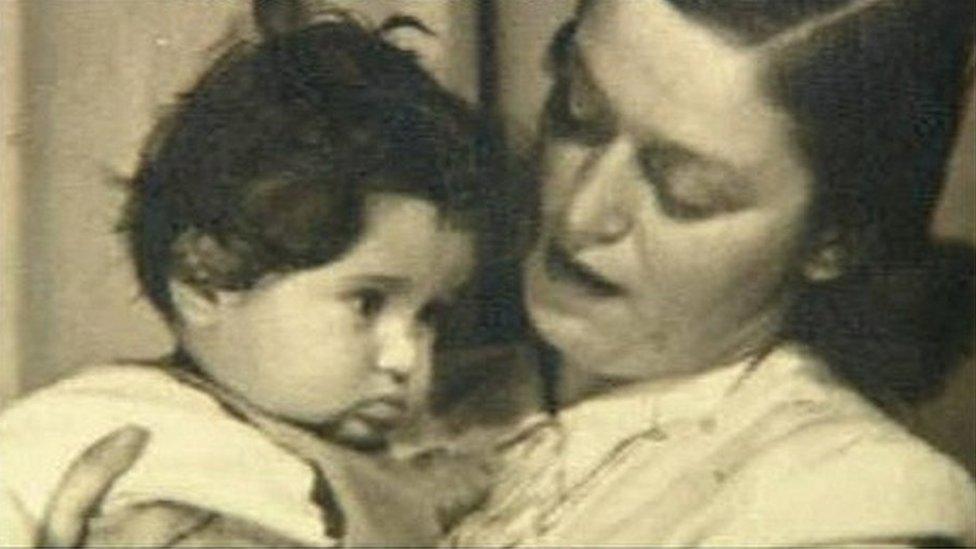
Eva Clarke as a baby with her mother Anka
When the Nazis invaded, Mrs Clarke's parents were sent to Theresienstadt where they spent more than three years.
Although men and women were segregated, the couple met secretly and her mother became pregnant.
They had a boy, but he died from pneumonia when he was two months old.
She fell pregnant again but in late 1944, Mr Nathan was sent to Auschwitz and his wife volunteered to follow him.
But she never saw her husband again and later heard he had been shot dead on a death march in January 1945.
While pregnant at Auschwitz, she was sent to work in a factory.
As the war ended, Mrs Clarke's mother was put on a train journey lasting 17 days with no food and little water and went into labour shortly after arriving the Mauthausen concentration camp.
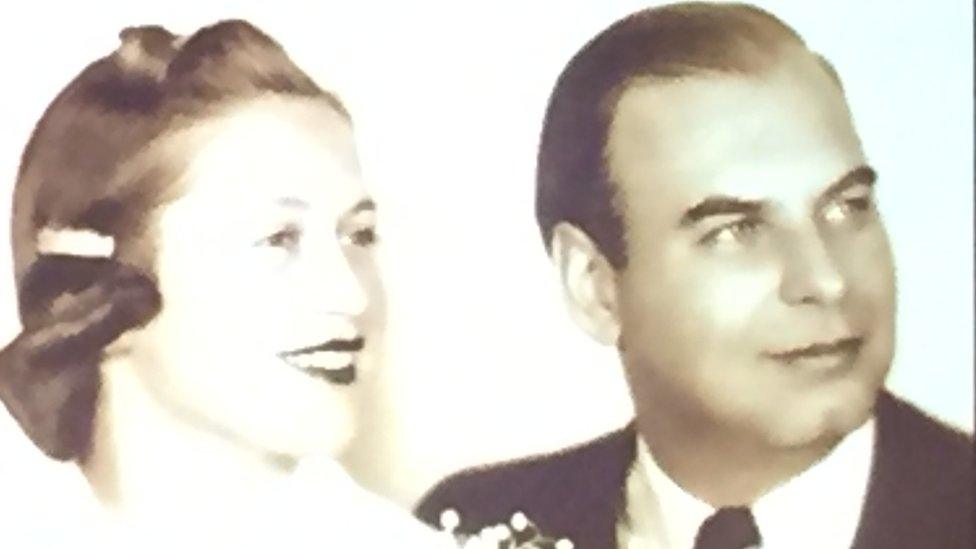
Anka Bergman and Bernd Nathan were separated in a concentration camp before Mr Nathan was shot dead
At the time of giving birth to her daughter on 29 April 1945, she weighed about 5st (31kg). Her baby only weighed about 3lbs (1.3kg).
After returning to Prague, Mrs Clarke's mother met Karel Bergman, who served as a translator in the RAF during the war but returned to his home country.
The three moved to Cardiff which is where Mrs Clarke lived until she was 18. She now lives in Cambridge.
She said: "I do these talks for the commemoration, to remember all those people who were killed and to tell one family's story.
"It's all to try to make it come alive - that they realise it did happen and what happened. It's heart-warming, their reactions, and it's quite moving."
Student Caleb Evans said listening to Mrs Clarke's account was "incredible".
"It's such a huge piece of history. It's something that can't be read in a history book and fully comprehended," he added.
Another student, Charlotte Brookes, said: "It was a really amazing thing to be able to hear first-hand."
- Published27 January 2017
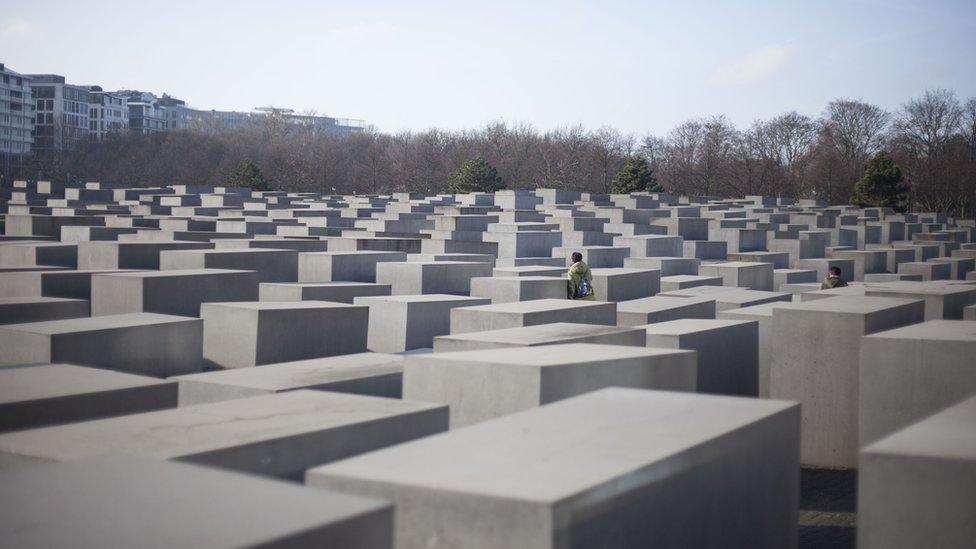
- Published14 April 2014
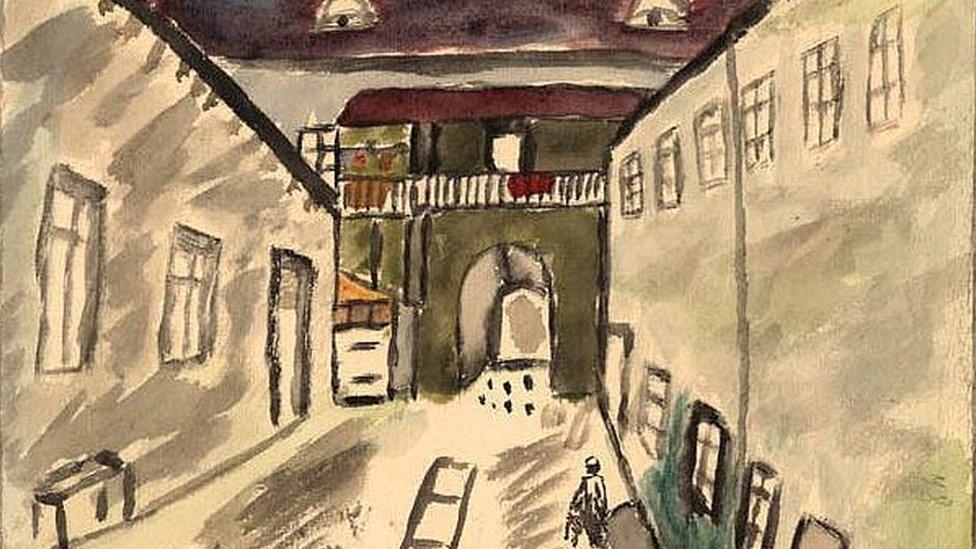
- Published5 May 2013
